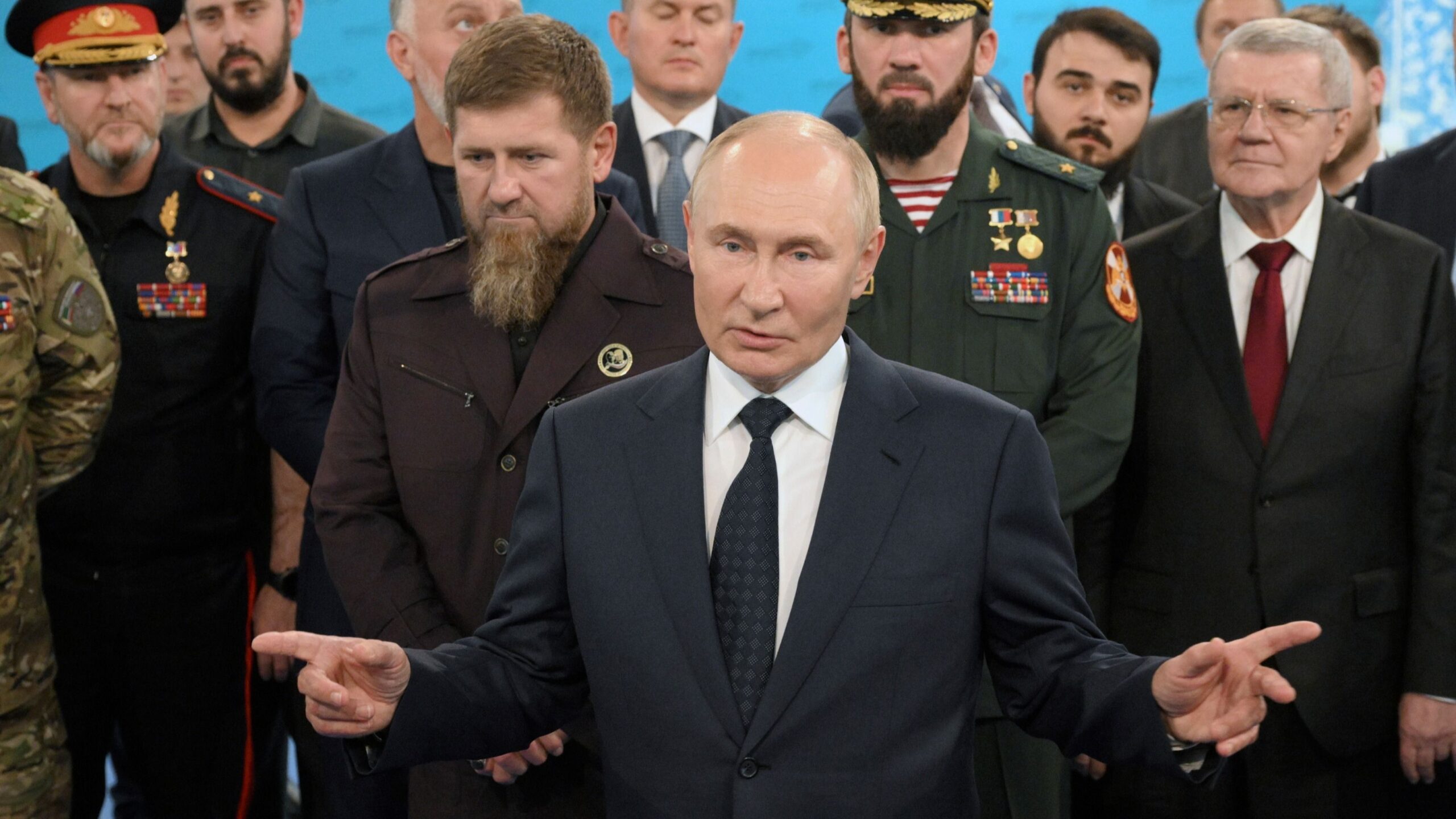Moscow: Russia on Friday accused six British diplomats of espionage and announced it had decided to expel them. Britain said the “totally unfounded” move came weeks ago and was linked to its May move to revoke the credentials of an attaché at the Russian embassy and limit Moscow’s diplomatic activities in London.
The latest tensions between East and West came as British Prime Minister Keir Starmer visits Washington for talks that will include Ukraine’s request to use Western-supplied weapons to attack targets inside Russia. Vladimir Putin He warned that kyiv’s use of long-range weapons would put NATO at war with Moscow.
Russia’s Federal Security Service said in an online statement that the Foreign Ministry had withdrawn the accreditations of the British envoys, and Russian television quoted an FSB official as saying it had been decided to expel them.
The FSB said it received documents indicating the diplomats were sent to Russia by a division of the UK Foreign Office “whose main task is to inflict a strategic defeat on our country,” and that they were involved in “intelligence-gathering and subversive activities.” It did not identify the six diplomats.
The FSB warned that if other diplomats are found to be carrying out “similar actions,” it will “demand the early termination of their missions” in Russia.
Russian television said the six diplomats had met with independent media and human rights groups that have been declared “foreign agents,” a label Russian authorities have actively used against organizations and individuals critical of the Kremlin.
Foreign Ministry spokeswoman Maria Zakharova said in a statement that the diplomats were carrying out “subversive actions aimed at causing harm to our people.”
“We fully agree with the assessments made by the Russian FSB regarding the activities of the so-called British diplomats,” he added in a statement posted online. “The British embassy has gone far beyond the limits set by the Vienna Conventions.”
Kremlin spokesman Dmitry Peskov said breaking off diplomatic relations with Britain was not on the table at the moment.
Calling the Russian accusations “completely unfounded”, the UK Foreign Office said the expulsions happened weeks ago, linking them to Britain’s decision in May to revoke the credentials of an attaché at Moscow’s embassy in London and impose a five-year time limit on all Russian diplomats in Britain.
“The Russian authorities revoked the diplomatic accreditation of six British diplomats in Russia last month, following measures taken by the British government in response to Russian state-directed activity across Europe and in the UK,” the Foreign Office said in a statement. “We make no apologies for protecting our national interests.”
In May, the UK expelled the Russian defence attaché in London, claiming he was an undeclared intelligence officer, and closed several Russian diplomatic properties in Britain that it said were being used for spying. About a week later, Russia responded by expelling the British defence attaché.
Expulsions of diplomats, both Western envoys working in Russia and Russians in the West, have become increasingly common since Moscow launched its invasion of Ukraine in 2022.
Last year, Russian media outlet RBC counted that Western countries and Japan expelled a total of 670 Russian diplomats between early 2022 and October 2023, while Moscow responded by expelling 346 diplomats. According to RBC, that figure is higher than in the previous 20 years combined.
On his way to the US, Starmer said Britain was “not looking for any conflict with Russia”.
“Russia started this conflict. Russia invaded Ukraine illegally. Russia could end this conflict immediately,” he told reporters.
“Ukraine has the right to self-defense and we have obviously fully supported that right of Ukraine. As you know, we are providing training capacity. But we are not seeking any conflict with Russia. That is not our intention at all,” he said.
Ukraine wants approval to use some weapons to strike deeper into Russia and there are signs that the president Joe Biden It could change US policy in response.
While the issue is expected to be high on the meeting’s agenda, Biden and Starmer appear unlikely to announce any policy changes at this point, according to two U.S. officials familiar with the planning for the talks. The officials spoke on condition of anonymity because they were not authorized to discuss the private deliberations.
Ukrainian officials renewed calls to use Western-supplied long-range missiles against targets deeper inside Russia during this week’s visit to kyiv by U.S. Secretary of State Antony Blinken and British Foreign Secretary David Lammy.
Blinken said he had “no doubt” Biden and Starmer would discuss the matter during their visit, noting that the US has adapted and “will adjust as necessary” as Russia’s battlefield strategy has changed.
Disclaimer:
The information contained in this post is for general information purposes only. We make no representations or warranties of any kind, express or implied, about the completeness, accuracy, reliability, suitability or availability with respect to the website or the information, products, services, or related graphics contained on the post for any purpose.
We respect the intellectual property rights of content creators. If you are the owner of any material featured on our website and have concerns about its use, please contact us. We are committed to addressing any copyright issues promptly and will remove any material within 2 days of receiving a request from the rightful owner.

